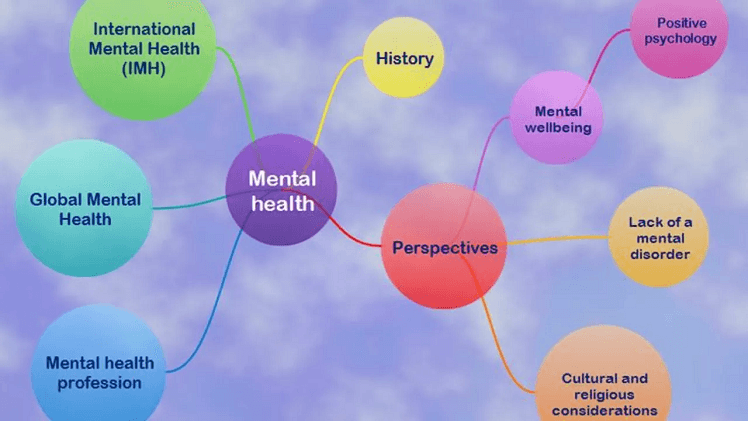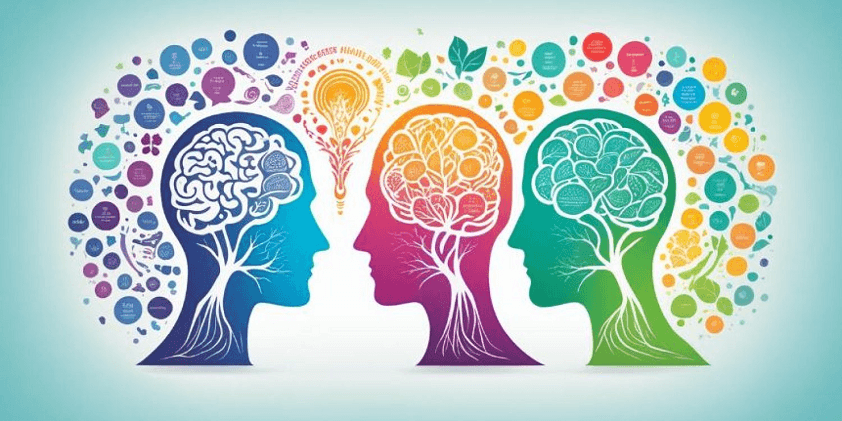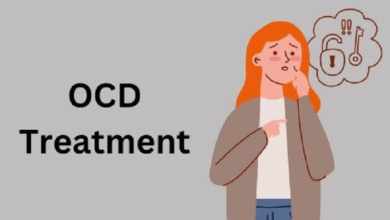Mental Health Definition: Understanding the Core Concept

Mental health definition is more than just the absence of mental illness; it encompasses emotional, psychological, and social well-being. It affects how individuals think, feel, and behave in daily life, influencing their ability to handle stress, maintain relationships, and make ztec100.com decisions. Recognizing and prioritizing mental health is essential for living a fulfilling and balanced life.
The Pillars of Mental Health

1. Emotional Well-being
Emotional health involves recognizing, understanding, and managing emotions effectively. It includes the ability to cope with life’s challenges, recover from setbacks, and express feelings constructively.
2. Psychological Resilience
Psychological well-being focuses on an individual’s cognitive processes, including their self-esteem, perspective, and problem-solving abilities. Resilience plays a critical role in bouncing back from adversity.
3. Social Connectivity
Social well-being highlights the importance of healthy relationships and meaningful connections. A strong support system fosters a sense of belonging and reduces feelings of isolation.
Why Mental Health Matters
Maintaining good mental health is crucial for:
- Physical Health: Chronic stress and mental health conditions can lead to physical ailments like heart disease and weakened immunity.
- Productivity: Mental well-being directly impacts focus, creativity, and efficiency in personal and professional endeavors.
- Relationships: Healthy mental states improve communication, empathy, and conflict resolution in relationships.
- Quality of Life: A sound mind enhances overall satisfaction, allowing individuals to engage fully in life’s experiences.
Factors Affecting Mental Health
Several factors influence mental health, including:
- Biological: Genetics, brain chemistry, and physical health conditions.
- Psychological: Coping mechanisms, past experiences, and personality traits.
- Environmental: Family dynamics, socio-economic conditions, and cultural norms.
- Lifestyle: Sleep patterns, physical activity, and diet play a pivotal role in mental wellness.
Common Mental Health Conditions

Understanding prevalent mental health conditions can foster awareness and empathy:
- Anxiety Disorders: Characterized by excessive worry or fear that disrupts daily life.
- Depression: A mood disorder causing persistent feelings of sadness, hopelessness, and disinterest.
- Bipolar Disorder: Involves extreme mood swings, ranging from mania to depression.
- Post-Traumatic Stress Disorder (PTSD): Develops after experiencing or witnessing traumatic events.
- Obsessive-Compulsive Disorder (OCD): Manifests as intrusive thoughts and repetitive behaviors.
How to Promote Mental Well-being
Adopting proactive measures can significantly improve mental health:
1. Practice Self-Care
Engage in activities that nurture your body and mind, such as meditation, hobbies, or journaling.
2. Stay Active
Regular physical activity boosts mood by releasing endorphins, reducing stress, and improving sleep.
3. Foster Connections
Build strong relationships with friends, family, and community members. Social interactions provide emotional support and a sense of belonging.
4. Seek Professional Help
Therapists, counselors, and psychiatrists offer tailored strategies and interventions for mental health challenges.
5. Limit Stressors
Identify and reduce sources of stress through effective time management, boundary-setting, and relaxation techniques.
6. Educate Yourself
Understanding mental health empowers individuals to recognize signs of distress and seek timely support.
The Role of Society in Mental Health
Mental health is not just an individual concern; it is a collective responsibility. Societies can contribute by:
- Reducing Stigma: Open conversations and awareness campaigns can normalize seeking help.
- Providing Resources: Access to affordable therapy and mental health education is vital.
- Creating Safe Spaces: Inclusive environments foster open expression and mutual respect.
Signs That You May Need Help
Recognizing when professional support is necessary is a crucial step toward recovery. Common signs include:
- Persistent sadness or anxiety
- Difficulty concentrating
- Changes in sleep or appetite
- Withdrawal from loved ones
- Unexplained physical ailments
- Thoughts of self-harm or hopelessness
Breaking Myths About Mental Health
1. Myth: Mental illness is a sign of weakness.
Fact: Mental health struggles can affect anyone and are not a reflection of personal strength.
2. Myth: Therapy is only for severe issues.
Fact: Therapy benefits individuals facing a wide range of challenges, from mild stress to major disorders.
3. Myth: Medication changes your personality.
Fact: When prescribed appropriately, medication helps balance chemical irregularities without altering one’s core identity.
FAQ: Mental Health Definition and Well-Being
Q1: What is the simplest definition of mental health?
Mental health refers to emotional, psychological, and social well-being, impacting how individuals think, feel, and act.
Q2: How can I maintain good mental health daily?
Prioritize self-care, physical activity, balanced nutrition, and meaningful connections. Seek help when necessary and practice stress management techniques.
Q3: Why is mental health important?
Mental health influences overall well-being, relationships, productivity, and physical health.
Q4: Can mental health issues be cured?
Many mental health conditions are manageable with proper treatment, therapy, and lifestyle changes, though not all are curable.
Q5: How does stress affect mental health?
Chronic stress can disrupt emotional balance, impair cognitive function, and lead to anxiety, depression, or other disorders.
Conclusion
Understanding the definition of mental health and its significance empowers individuals to prioritize their well-being. By promoting awareness, reducing stigma, and fostering supportive environments, we can collectively create a world where mental health is valued as much as physical health.




